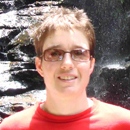Advisory Board and Editors Biotechnology

Paul Christakopoulos
Chaired Professor in Chemical and Biochemical Process Engineering, Lulea University of Technology, Associate Editor of World Journal of Microbiology and Biotechnology. Awarded an EU Marie Curie fellowship.

Maria Carmen Collado
Maria Carmen Collado (PhD 2005) holds a Research Scientist position at the Spanish National Research Council (CSIC) at the Institute of Agrochemistry and Food Technology (IATA-CSIC) in Valencia (Spain). Her research work is multidisciplinary and includes microbiology, food science, nutrition and human health. Her interests are focused on probiotics, microbiota and health and nutrition during pregnancy and early life period.

Stéphane Compant
Stéphane Compant (PhD. Reims, France 2007; Associate Professor of Microbiology at the National Polytechnic Institute of Toulouse in France since 2009; Sabbathical years since 2012; Project leader/Scientist at AIT Austrian Institute of Technology since 2012; Habilitation in 2017 at University of Bordeaux/Bordeaux Sciences Agro) has coordinated several research and training programmes for national and international agencies. He is a leading research expert in microbial ecology of endophytic bacteria and fungi interacting with plants, beneficial or not. He also works on beneficial plant-microbe interactions in general, and biocontrol of plant diseases using various biocontrol agents from different sources. Stéphane Compant was a member of the Management Committee France, as well as a STSM member on European cost action FA1103. He also represented Austria on European cost action FA1303, co-chair of microbial ecology, EIP-Agri Pests and Diseases in Viticulture, and serves on various review committees and scientific journal boards.

Christopher Cooper
Senior Lecturer in Biological Sciences at the University of Huddersfield, since 2015. Previously Junior Research Fellow, College Lecturer In Biochemistry and various postdocs at the University of Oxford (2013-15). Working on DNA replication, genome integrity and transcription factors in human cancers (and also in prokaryotes). Additional interests in phylogenomics and novel protein expression systems.

Leticia Costa-Lotufo
Dr. Costa-Lotufo is a full professor at the Department of Pharmacology, Institute of Biomedical Sciences, University of São Paulo. Her lab is focused on the discovery of new anticancer compounds from Brazilian marine biodiversity and studies on their mechanisms of action. She coordinate a multidisciplinary project to access marine microorganisms diversity and biotechnological potential along the Brazilian coast and islands. Dr. Costa-Lotufo’s activities include the supervision of undergraduate and graduate students and post-doctoral fellows. She has published book chapters, review articles and more than 230 articles in peer-reviewed journals. On 2010, Dr. Costa-Lotufo was nominated as a young scientist of the Brazilian Academy of Science (2010-2014).

Vincent Courdavault
Associate Professor at the University of Tours, studying plant specialized metabolism with a particular emphasize on monoterpene indole alkaloids. I'm using transcriptomics, functional genomics tools to elucidate biosynthetic pathways. My resarch interests also include the transfert of plant pathways in heterologous organisms ubcluding the budding yeast.

Krystyna Dąbrowska
Affiliation: Institute of Immunology and Experimental Therapy, Polish Academy of Sciences, Wrocław, Poland (Bacteriophage Laboratory).Position: professor.
Current field of interest: non-bactericidal effects of phages in mammals; i.e. phage molecular biology tools for studies of phage impact on immunological system and other physiological aspects in mammals.

Charlotte M. Deane
Professor of Structural Biology and Director of the Systems Approaches to Biomedical Sciences Industrial Doctoral Centre at Oxford University.

Damien P. Debecker
Damien P. Debecker is Associate Professor at the UCLouvain (Belgium), teaching physical chemistry, process engineering, principles of biorefining, and industrial waste treatment. His research group aims at developing new heterogeneous catalysts and biocatalysts, paving the way to the design of more sustainable chemical processes. At the interface between green chemistry, materials chemistry, biochemistry and chemical engineering, his expertise lies in the preparation of innovative solid (bio)catalysts and in their evaluation in relevant reaction conditions. Catalyst preparation methods include the aerosol-assisted sol-gel, emulsion-templating, non-hydrolytic sol-gel, colloidal methods, enzyme immobilization. Targeted applications cover biomass upgrading, volatile organic compounds total oxidation, biocatalyzed organic synthesis, CO2 methanation, olefin metathesis, etc.

Carminia Maria Della Corte
-09/01/2018-current: Postdoc researcher at MDACC, Houston, Thoracic Head and Neck department, PI: Lauren Byers
-05/07/2012 – 04/07/2017: Residency in Medical Oncology (50/50 cum laude) at Second University of Naples, research thesis in:“Role of Hedgehog pathway in the acquisition of resistance to EGFR inhibitors in EGFR mutant non small cell lung cancer models”
- 10/10/2011: Degree in Medicine (110/110 cum laude), at Second University of Naples, research thesis in “Antitumor activity of sorafenib in human cancer cell lines with acquired resistance to EGFR and VEGFR tyrosine kinase inhibitors”
-Multiple first-name and co-authored publications in Transnational research in Oncology field.

Nathalie Diagne
Dr. Nathalie Diagne is a Researcher at the Senegalese Institute of Agricultural Research in Senegal.
Her primary expertise includes, Plant Biotechnology, Sustainable Development, Sustainable Agriculture, and Plant Biology.

Douglas S Domingues
I am an Assistant Professor in Plant Molecular Genetics at the "Luiz de Queiroz" College of Agriculture, University of São Paulo, Brazil. My main interests are devoted to understanding gene and genome evolution in plants, working on genome-wide analyses, including transcriptional analyses of gene families relevant to plant metabolism, RNA-seq analyses in plants, as well as studies on non-coding RNAs and transposable elements.

